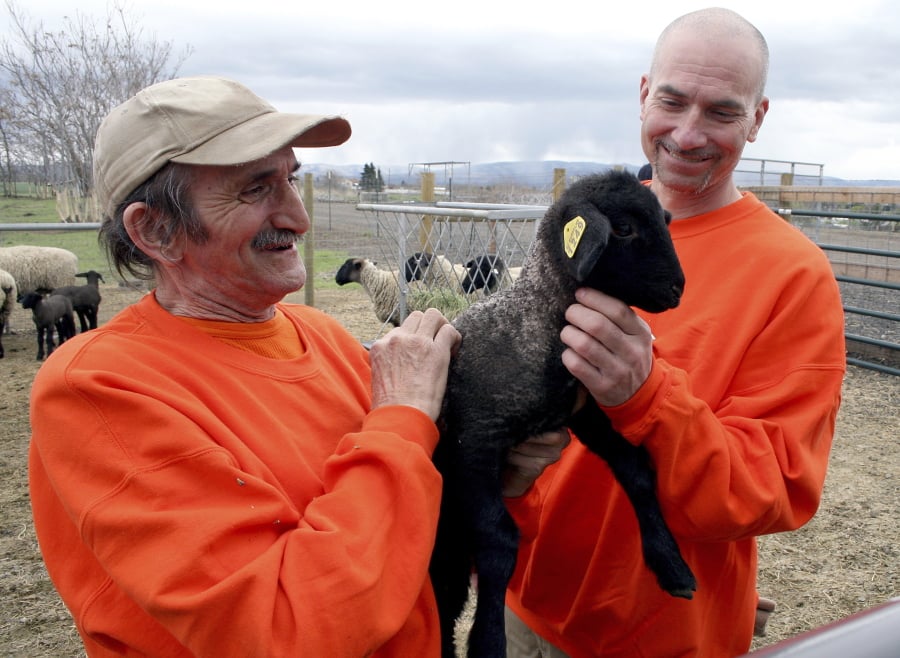WALLA WALLA — Wild bighorn sheep and their domestic cousins have an unfortunate relationship.
Both can be infected by a bacteria that can trigger pneumonia. But while the pathogen leads to mild sickness in the domestic animals, it can be lethal to bighorn sheep.
According to conservationists, the bacteria are one of the biggest threats to the wild sheep, which can come into contact with domestic flocks as both graze on rural lands. But a pilot project at Washington State Penitentiary hopes to help efforts to protect bighorns from the pathogen.
The program, which involves inmate trainees, aims to raise sheep free of the bacteria Mycoplasma ovipneumoniae for later sale to small herd owners. Currently, no private domestic sheep breeders specialize in raising sheep free of the disease, according to Kelli Bush with the Sustainability in Prisons Project, one of the project partners.
Along with the Sustainability in Prisons, a joint initiative of the state Department of Corrections and Evergreen State College, the sheep project also involves the Washington Department of Fish & Wildlife, Bush said.
Working under the guidance of sheep husbandry experts, inmate trainees began caring for the flock eight months ago when the animals arrived at the penitentiary.
“We started with 15 ewes and one ram, and now we’re up to 44 (sheep),” said Justin Lange, one of the trainees who met with reporters Monday.
The original flock was enlarged by the arrival of 28 lambs this spring, an event which gave their caretakers new experiences in looking after the newborns.
Jared Oyster, a Fish & Wildlife bighorn sheep biologist, said the original 16 sheep were selected from several flocks and underwent “a whole suite of tests to make sure they are healthy.”
The flock at the penitentiary is being housed in buildings and a fenced pasture across from the main institution, which is one of the measures to prevent the M. ovi bacteria from infecting the animals.
The lambs born this year will be sold in 2019 as yearlings, Bush said. Project sponsors also hope the program will attract interest in the private industry.
The program employs between four to six inmates at any given time, and participants receive education and training on sheep husbandry, bighorn sheep ecology, wildlife management and related topics.
While Lange said he was a “city boy,” born and raised in Tacoma, his fellow caretaker Billy Schoenbachler said he was born and raised on a dairy farm.
“So this is like coming home for me,” Schoenbachler said.
The men start work about 7 a.m., watering and feeding the flock, counting noses to make sure no animals are missing and checking to make sure all are healthy. They then go to other work assignments but come back again in the afternoon for the flock’s second feeding and another round of health checks.
Tasks also involve cleaning the pens, giving vaccinations, doing nasal swabs needed to check for the absence of M. ovi bacteria and other disease testing along with many other chores.
For Lange, the work has been therapeutic as well as educational.
“My biggest lesson is learning more responsibility, and it’s given me more respect for the farmers and ranchers who work with animals,” he said.



